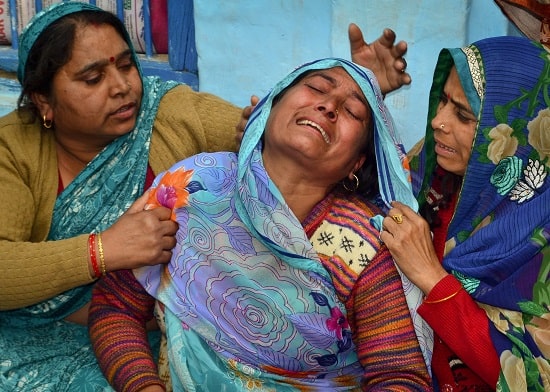
The dustup over bodies of slain soldiers in India’s strife-torn Kashmir has taken a break, pesky reporters shifted their whirring cameras from candlelight processions at war memorials. In the studios of India’s 350-odd television channels, boisterous anchors are wondering what would India do next, all will follow instantly.
With the cameras and crowds gone, grief and pain is settling down at the homes where they brought the warriors dead. Soldiers continue to die in Kashmir, it’s still happening. And when it does, breaking the news is the worst job.
The days of telegrams and taxi drivers paid to ring door bells are over, these days a quick call from the headquarters is enough to shatter ceilings at home. There’s not much room for creativity, the army and the para military forces prefer to have it straight—face-to-face. It’s painful and awful, its just a service.
Many get inside and break the news, many do it on the porch in front of all the neighbours. I was once witness to deaths of some miners in Ranigunj, close to the coal belt of Dhanbad.
Women whose husbands wear the Khakee are nervous every day. They hear of blasts, badly mangled bodies and death but hold onto that hope that it’s not as bad as they think it is. And then the news breaks, the family dog barks, stone-faced neighbours crowd the living room, the hapless wife collapses in a paroxysm of sobbing.
And there are times when the news is broken at very, very inappropriate moments. The Khakee that guards me, my family, should not come back home in a casket.
